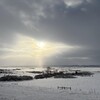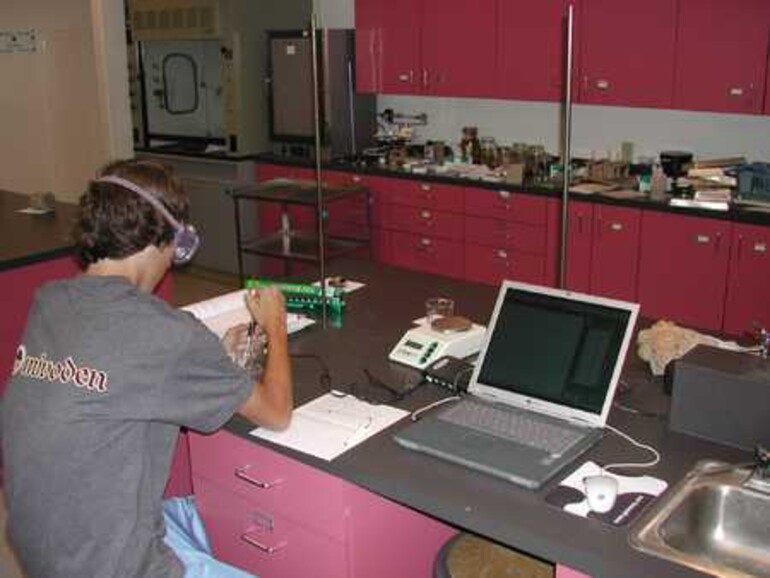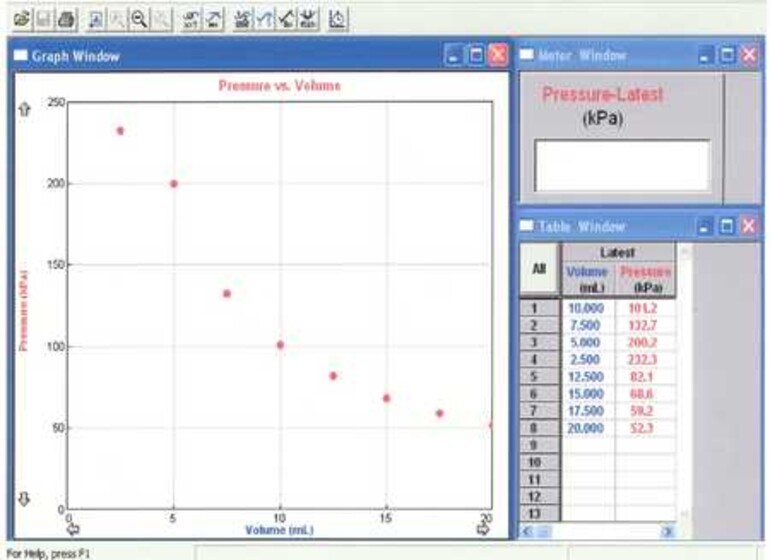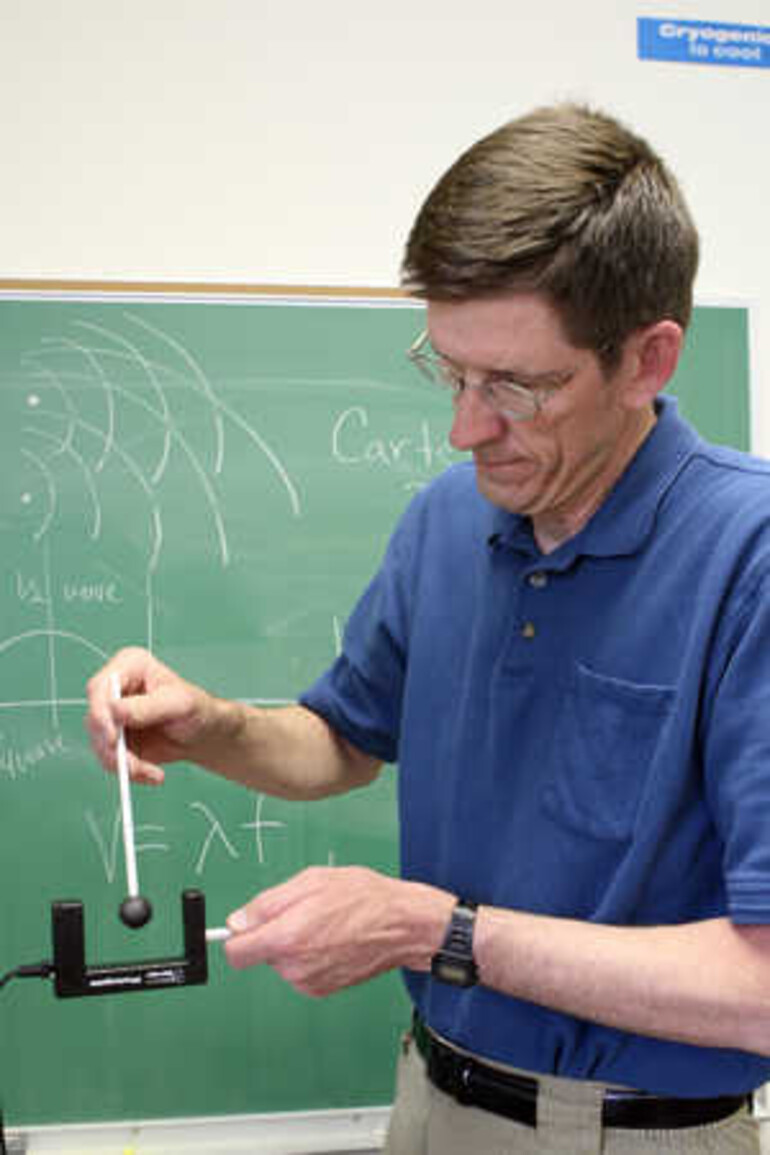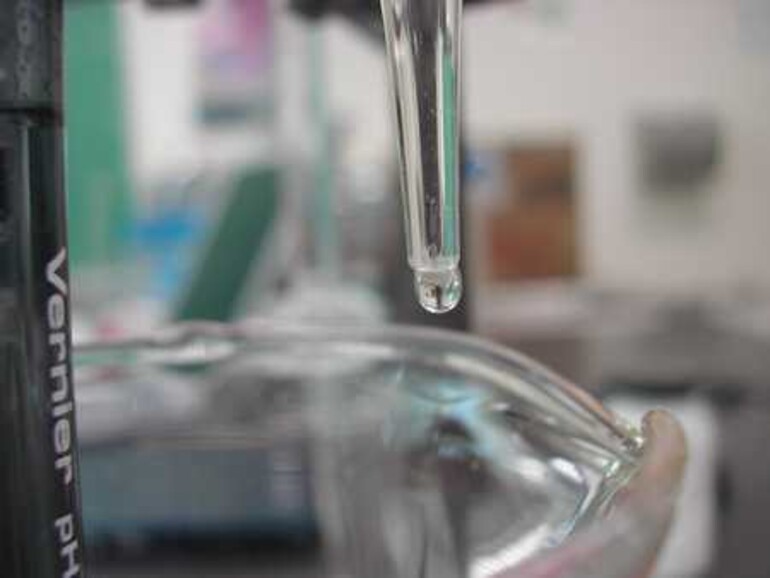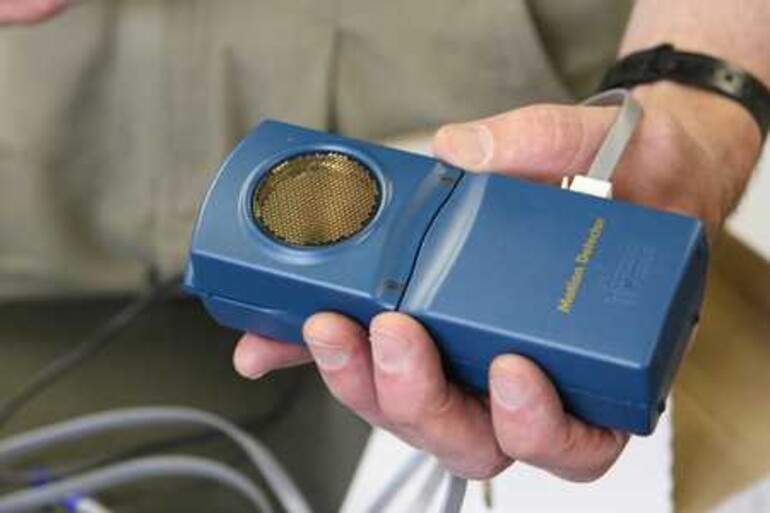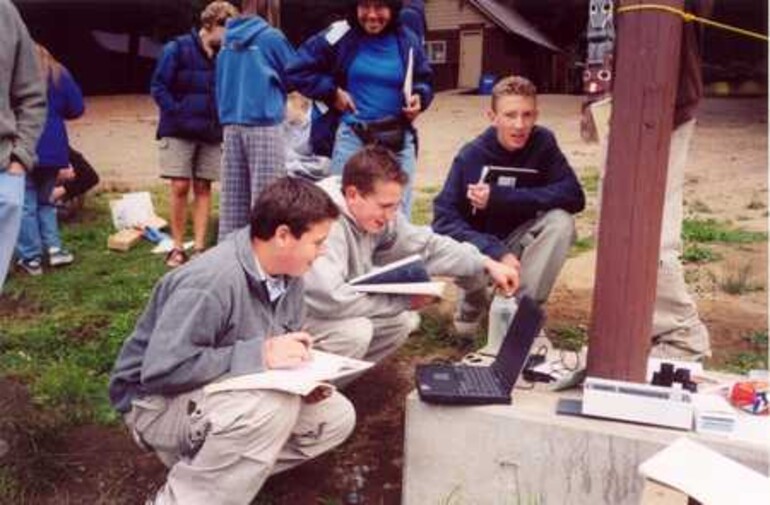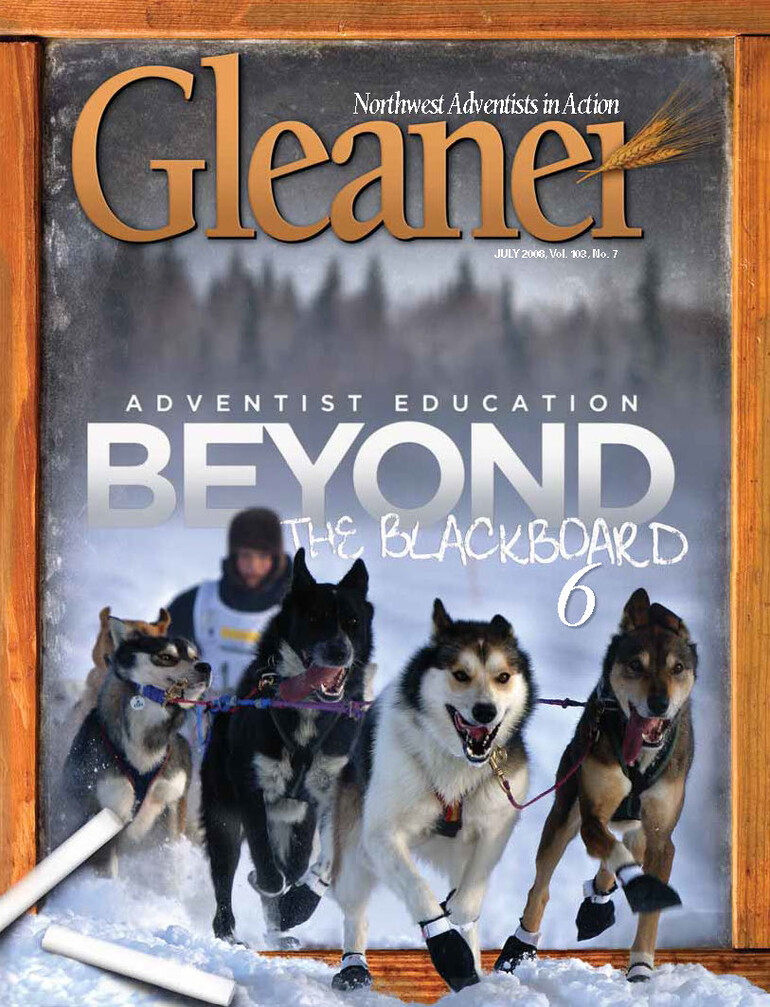Watching Doug Vixie at work reveals the essence of a good science teacher—an irrepressible delight at learning something new, and sharing it with someone else.
Although he has always loved the great outdoors, Doug found additional inspiration from his own academy science teacher, Joe Young, at Walla Walla Valley Academy. While he originally planned to specialize in research or teaching at the collegiate level, he has found a home in Adventist elementary and secondary schools, and has spent the past 11 years as a science teacher at Cascade Christian Academy in Wenatchee, Washington.
A few years back he saw firsthand how computer interfaces could accelerate and enhance the process of gathering certain kinds of scientific data. His application for a Don Keele Award was honored in 2001 and enabled him to purchase a LabPro interface, three sensors and a laptop computer.
The relatively simple-looking interface translates complex data gathered by a sensor and, once inputed into a computer, allows both teacher and student to immediately see graphs or other visual readings.
For instance, a CCA student can hook up a light sensor and instantly measure and graph the change of intensity as a light source is partially blocked; or use a photo gate to accurately pinpoint the velocity of an object; or insert a probe into water to discover the percentage of dissolved oxygen.
"Most of our students are already interested in technology," says Doug. "It's as natural for them to use it in learning as we used to feel in opening a book." Right now, the science lab has several different types of sensors for measuring light, sound, force, velocity, etc., but only one of the LabPro interfaces. Doug hopes to raise additional funds to acquire multiple interfaces so that several students can do measuring experiments simultaneously.
"Our emphasis is on ‘active learning,' emphasizing a hands-on approach," says Doug. His students will be using very similar devices when they go to college, and he's proud to have had a part in teaching them that learning about science can be fun.


